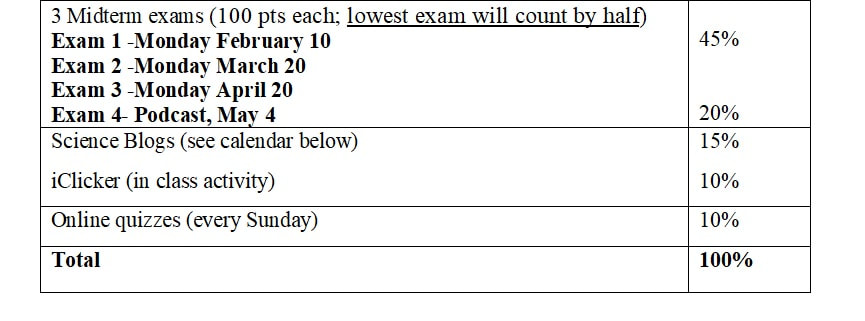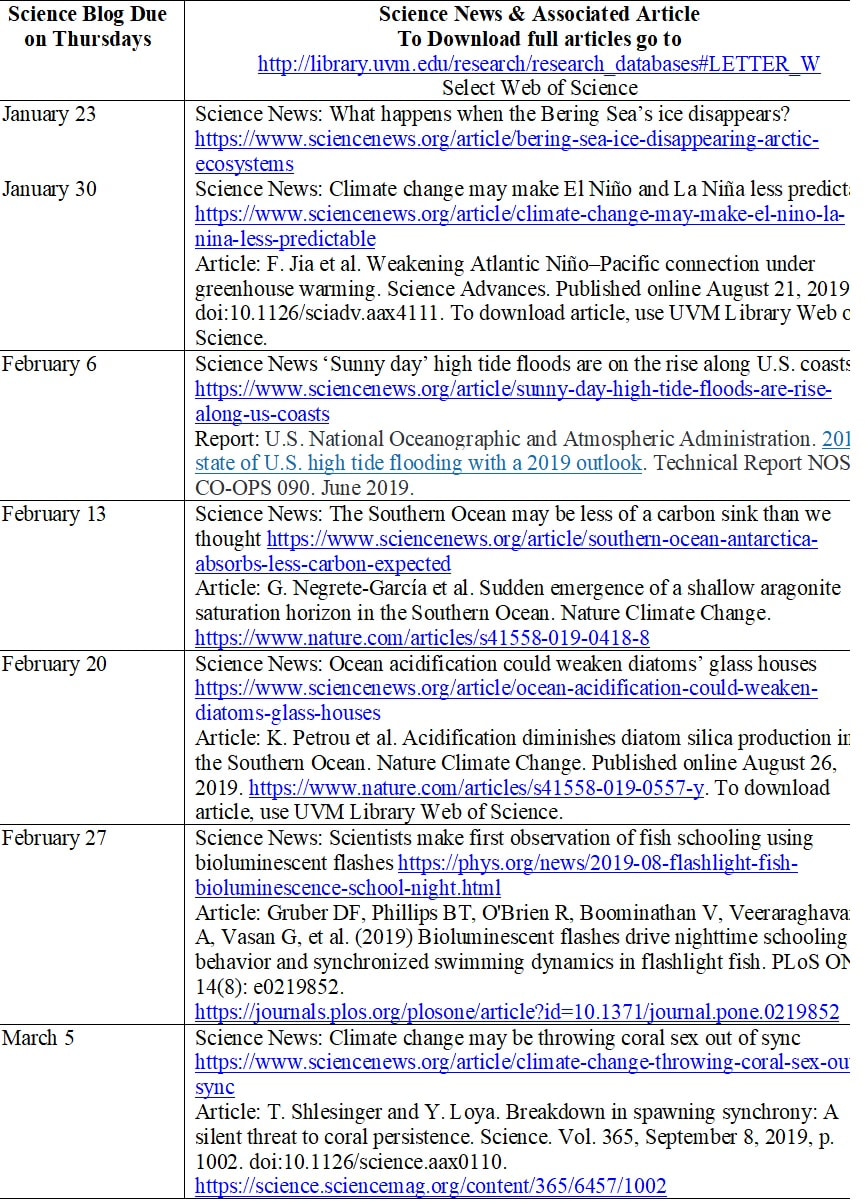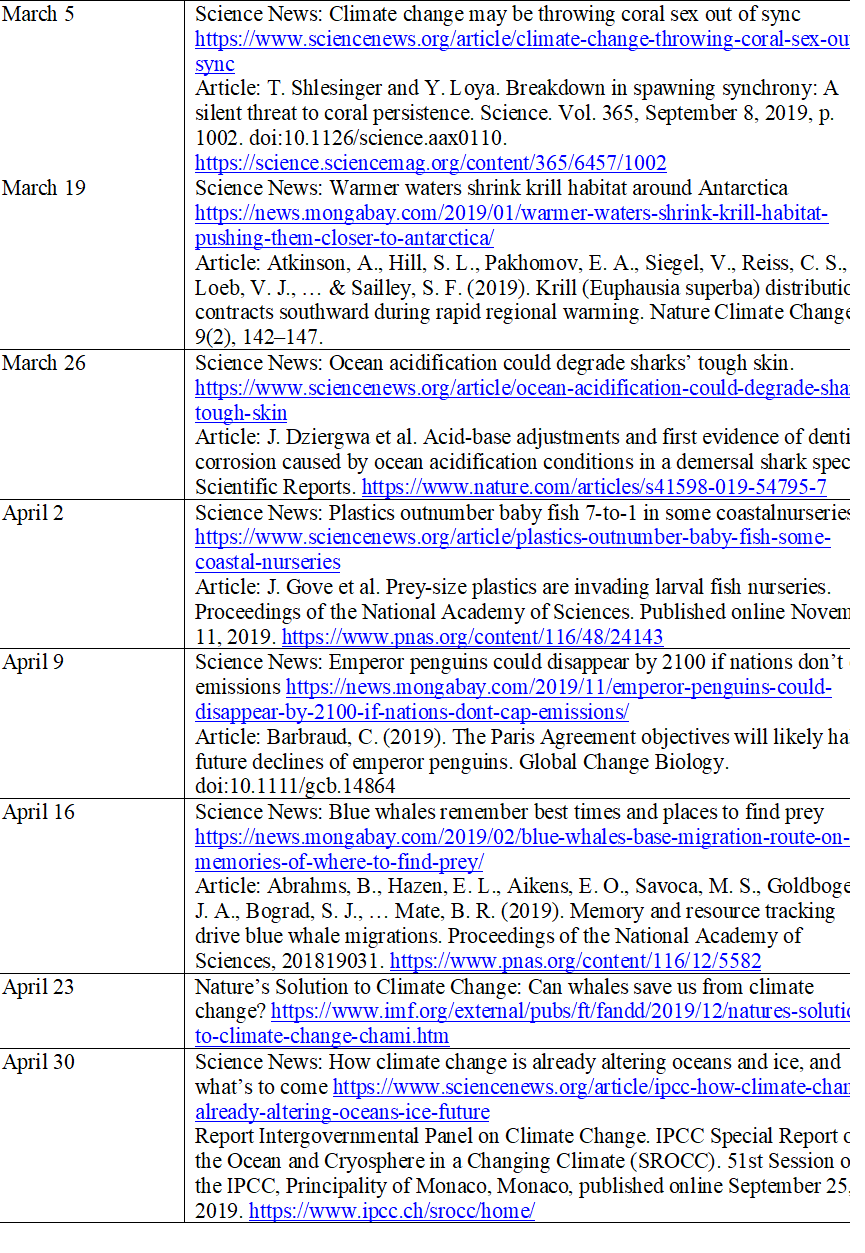BIO-196 Introduction to Marine Sciences (BIOL 196A)
(next Fall 2024)
Our oceans cover about 70% of earth’s surface with a predicted eukaryotic diversity of about 2.2 million species! Not only do they represent an enormous source for new antibiotics and food, but oceans have a starring role in Earth’s climate. In addition, understanding how oceans work is fundamental to understand the unique conditions that have favored the evolution of life on our planet, including human evolution. The goal of this introductory course is to provide students with an overview of concepts and process in oceanography, geology, ecology, evolution, organismal biology, and conservation. Some of the topics we will discuss in class include tsunamis, El Niño, ocean chemistry and physics, bioluminescence, sharks and whales, coral reefs and deep-sea communities, the state of world’s fisheries, human impact on marine ecosystems, and many more. This semester I will emphasizes the impact of climate change and ocean acidification in marine life.
The learning goals of this course are:
The learning goals of this course are:
- That you can articulate oceanographic and biological processes using the appropriate terminology.
- That you learn to recognize the hierarchical relationships of marine organisms and the threats these organisms face.
- That you learn how to read a scientific paper, interpret figures, and identify patterns.
- That you learn to make connections from lecture to real situations e.g., climate change, ocean acidification, etc.
Syllabus Spring 2020 (updated)Podcast resourcesExample of a podcast by Alex Taylor on Whale Pump and Nutrient (check your BB website):
|



